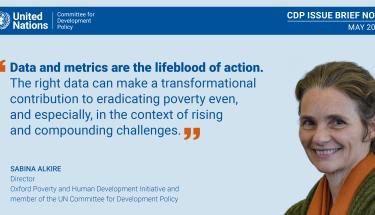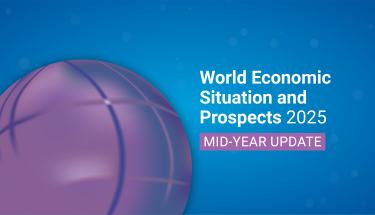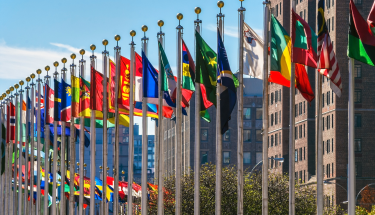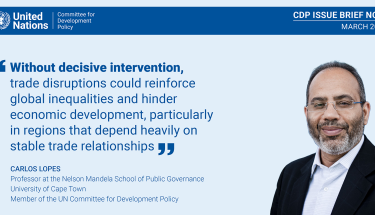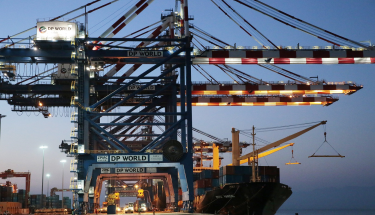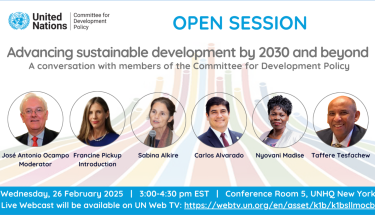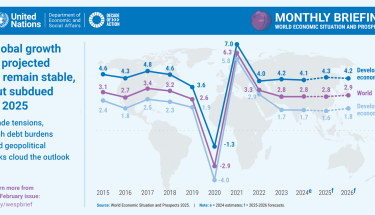The global economic outlook as of mid-2025 has deteriorated notably, according to the latest World Economic Situation and Prospects (WESP) update. Global growth is now forecast to slow to 2.4 per cent in 2025, down from 2.9 per cent in 2024 and 0.4 percentage points below the January forecast.
News & Events
Ahead of WSSD2, Sabina Alkire talks about multidimensional poverty and poverty eradication.
In the second CDP Issue Brief, Sabina Alkire discusses the potential of data for poverty eradication and the opportunities for WSSD2 to act on that potential.
A sudden escalation of trade tensions has sent shockwaves through the global economy, dampening growth prospects while fueling uncertainty and inducing financial market volatility.
The report addresses new contexts and pathways for development, financing for development, trade as engine for sustainable development, and human and social development. It also addresses challenges faced by LDCs, proposals to strengthen the LDC graduation framework; and the monitoring of countries that are graduating or have recently graduated from the LDC category.
Geopolitical fragmentation, trade barriers, and climate change portend recurrent supply-side shocks, fuelling unpredictable inflationary pressures. These disruptions are increasing uncertainty and volatility, which complicate investment decisions and economic policymaking.
The near-term global trade outlook is fraught with uncertainties amid new tariffs and other trade restrictions. While recent history demonstrates that the global trading system is resilient, often adapting by finding alternative channels for sustaining commerce, policy uncertainty could hinder this process by discouraging necessary investments.
CDP members shared their perspectives on what the international community should consider as it charts a path towards sustainable development beyond 2030
The report provides a wealth of innovative ideas and fresh perspectives that are critical to shaping the future of financing for development.
Report on the Committee’s recent work on innovation for structural change and equity, least developed countries (LDCs), and financing for development
The world economy has shown resilience despite multiple shocks, but the outlook remains uncertain due to ongoing conflicts, geopolitical and trade tensions, climate risks, and mounting fiscal pressures.
 Welcome to the United Nations
Welcome to the United Nations


